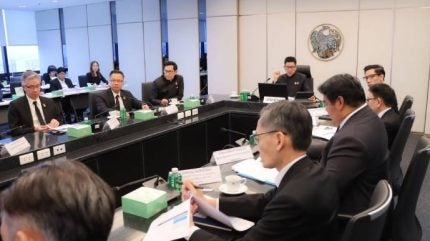
The Thai government has approved changes to its battery electric vehicle (BEV) incentive programme to encourage greater exports, with the industry fearing a domestic supply glut following the significant investments in production capacity in the last few years – mainly by Chinese brands, according to local reports citing a statement by the Board of Investment (BOI).
The BOI said it has approved adjustments to its current EV3.0 and EV3.5 incentive programmes, allowing for every BEV produced for export to count as 1.5 units towards a vehicle manufacturer’s local production obligations, instead of just 1 unit previously. The export obligations were introduced to make up for the cuts in excise duties and other incentives, which helped new entrants establish a local market presence ahead of local production.

Discover B2B Marketing That Performs
Combine business intelligence and editorial excellence to reach engaged professionals across 36 leading media platforms.
Thailand has attracted around US$ 4 billion in battery electric vehicle (BEV) and related component and charging network investments since it introduced the EV3.0 and EV3.5 programmes a few years ago, mostly from Chinese automakers such as BYD, GWM. SAIC-MG, GAC-Aion, Neta and Changan.
The agency released a statement saying the latest changes in regulations are designed “to incentivise automakers to increase exports and prevent domestic market oversupply.”
BEV sales amounted to almost 90,000 units in the first ten months of 2025, accounting for more than 18% of total vehicle sales in the country in this period, mainly as Chinese automakers ramped up production and released new products, along with aggressive pricing and extended battery warranties.
Other changes introduced by the Thai EV board include:
- Extending the registration deadline for BEVs produced under the EV3.0 incentive programme from the end of December 2025 to the end of January 2027, to accommodate end-of-year sales. For BEVs produced under the EV3.5 programme, the registration deadline has been moved from the end of December 2026 to the end of January 2027.
- The government will delay subsidy payments/tax credits to manufacturers that have failed to meet scheduled targets.
- To encourage local battery production, the deadline allowing imported battery cells to count as local production has been extended to 30th June 2026, up to a maximum of 10% of the BEV price.
- Allowing manufacturers to exit the import compensation programme by returning excise tax discounts, with additional penalties.
- Fast-tracking support measures for hybrid electric vehicle (HEV) production.






